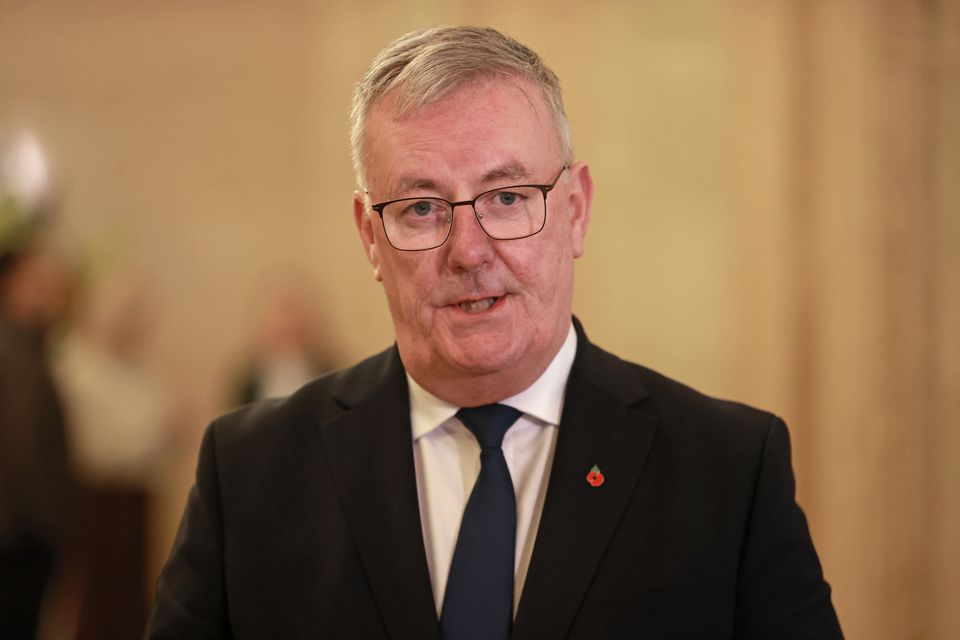The health service in Northern Ireland is currently experiencing “severe pressure”, it has been warned.
The Department of Health has issued an apology to patients who are “waiting longer than they have to” for treatment.
Health Minister Mike Nesbitt said the number of flu cases is a “significant contributory factor”.
The department said priority will always be given to cases that are immediately life-threatening.
A statement said: “The department, on behalf of the health and social care system, apologises to all patients who are waiting longer than they should and thanks patients and families for their continuing co-operation.
“We would appeal to the public to please be patient with staff and to do all they can to support them.
“Every one of us can help the health service get through this winter, including by using services appropriately, getting your vaccines if eligible, co-operating with hospital discharge processes and doing all we can to stay well.”
Health Minister Mike Nesbitt said he is being kept updated on pressures facing the health service (Liam McBurney/PA)
The statement said health trusts are maximising available hospital bed capacity.
It added: “Close co-operation with independent social care providers is ongoing.
“This includes a focus on promptly assessing patients ahead of transfers from hospitals to care homes.
“An app has been developed and is being deployed to provide real time information on available care home places, and digital solutions introduced to maximise trust home care availability.”
The department said priorities include maximising patient flow through hospitals and reducing ambulance turnaround times at emergency departments.
It added: “There is a long-term gap between capacity and demand for care.
“This is exacerbated further by winter-related illnesses.
“As well as adding to demand for care, these illnesses also reduce staffing numbers.”
Mr Nesbitt paid tribute to the work of health staff and said he was being regularly updated on pressures.
He added: “I warned several weeks ago that the health and social care system was again facing a very difficult winter period.
“Winter preparedness plans were of course developed but they were always going to mitigate the pressures rather than eradicate them.
“Serious challenges are also being experienced in neighbouring health services, with flu cases a significant contributory factor.
“I am assured that everything that can be done by the HSC (health and social care) system in the current situation is being done.
“Longer-term solutions require both investment and reform to increase capacity and ensure services can better meet the needs of our community.”
Read more
Mr Nesbitt’s announcement came after news that over 100 people across Northern Ireland were left waiting for ambulances on Friday night, and nearly 400 patients were left waiting on hospital beds becoming available.
The Northern Ireland Ambulance Service (NIAS) made the decision to only respond to serious ‘life or death’ situations.
A spokesperson said that the service is “experiencing severe challenges as a result of the pressures being felt across the HSC (health and social) system today.”
“Emergency Crews on duty today and tonight will be supplemented by Rapid Response paramedics and further support has been provided by the Independent and Voluntary ambulance sectors.
“These crews will deal with lower acuity calls, thereby keeping NIAS crews available for more serious emergencies.
“Delayed turnarounds at hospitals impact on NIAS capacity to respond to life threatening emergencies in the community and we continue to work closely with EDs to release crews at the earliest opportunity.
The spokesperson continued: “All calls received by NIAS are subject to triage to ensure that those who are sickest, receive our quickest response. This will unfortunately mean delays for patients waiting with less urgent conditions and NIAS would apologise to those patients who find themselves in this situation.
“We would ask the public to consider other alternatives to calling 999, such as seeking advice from GP out-of- hours, advice from pharmacist, or self presentation at hospitals if absolutely necessary.
“We would also ask those who are waiting for an ambulance, not to call back as this can impact on the ability of our control room staff to promptly answer calls, more serious in nature.
“NIAS also has a number of Paramedics in the control room who may call patients back to establish the most appropriate action to meet their needs, which may include non attendance at hospital.
“We appreciate and ask for continued patience of the public as they wait for an ambulance response. We are doing what we can to improve the situation.”
